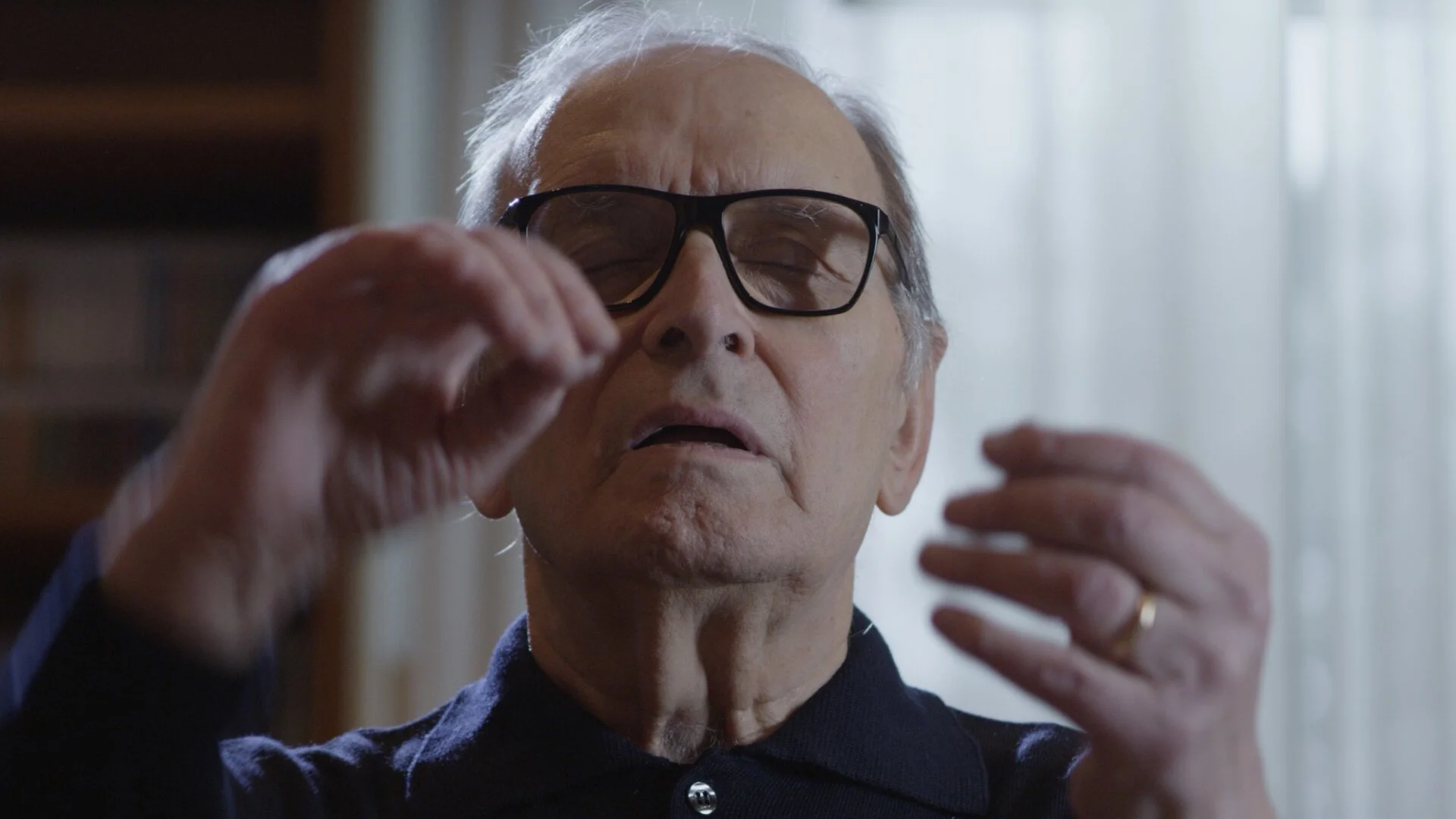Ennio Morricone, the beloved Italian film composer, left behind a remarkable body of work. Active well into his 80’s, Morricone’s scores are remarkable not only for their sheer quantity—he scored over 400 films and television programs over the course of sixty years—but for their quality. The Good, the Bad, & the Ugly; a handful of deeply influential gialo films; The Mission; Cinema Paradiso; Once Upon a Time in America; The Hateful Eight. On and on, the list goes. These are some of the greatest scores of all time. You could talk about Morricone’s work for days without running out of things to talk about.
So wealthy a corpus should be ideal fodder for a documentary, but Ennio, the 2021 Italian documentary, doesn’t know what to do with that much material. It’s far too long, too repetitive, and all while nothing that’s mentioned gets the time it deserves. We learn very little of consequence, about either him or the work. While you would hope a 2.5 hour documentary about one of the greatest composers of the 20th century would provide a buffet, it’s more a loose assembly of Costco samples.
That is not a knock on Costco samples, I was raised on Costco samples, but they don’t make a meal.
It started off strong, overlaying audio from various talking heads with footage of il maestro doing stretches. Exercise will keep you, it seems, pretty damn limber. I salivated at the thought of going through his office, lined as the shelves were with albums, scores, and books. The only real glimpse into anything profound comes on two occasions when Morricone reveals an exceptional sensitivity, something that he seems to keep guarded much of the time. It is easy to see how that type of sensitivity would have contributed to his work, which exudes raw humanity.
Despite my disappointment in the film itself, I found myself walking away consumed with thoughts about the magic of The Movies. This was only my second time hearing Morricone’s music in a theater, despite the fact that he has been one of my favorite composers for as long as I’ve had favorite composers. I’ve seen clips from The Good, the Bad, & the Ugly dozens of times over the course of my life, and I have always had an academic interest in seeing it, but watching those scenes play out on the big screen, surrounded by darkness and those glorious sounds, having nothing else to distract me? I became positively desperate to see them.
I know every note of “Gabriel’s Oboe,” one of the main themes from Morricone’s score for The Mission, and I heard it in a completely new light on Thursday. How many times have I heard the coyote call from The Good, the Bad, & the Ugly? Even in the midst of a documentary that was too long, during which I found myself dozing off intermittently, the power of those great scores wed to those great films, presented in a room in which I had no choice but to completely surrender myself to what I was seeing and hearing?
Fuck, man. The movies.
